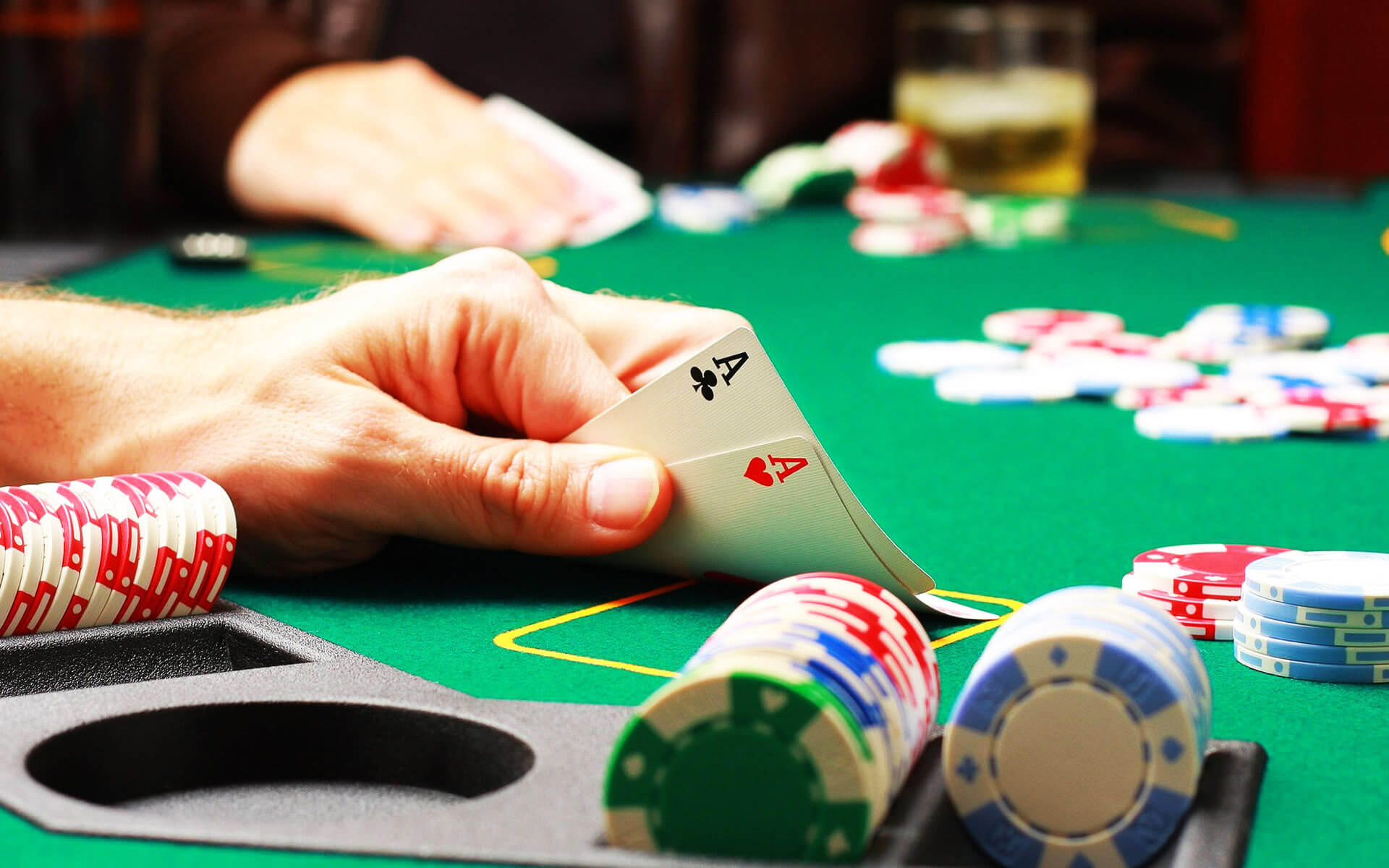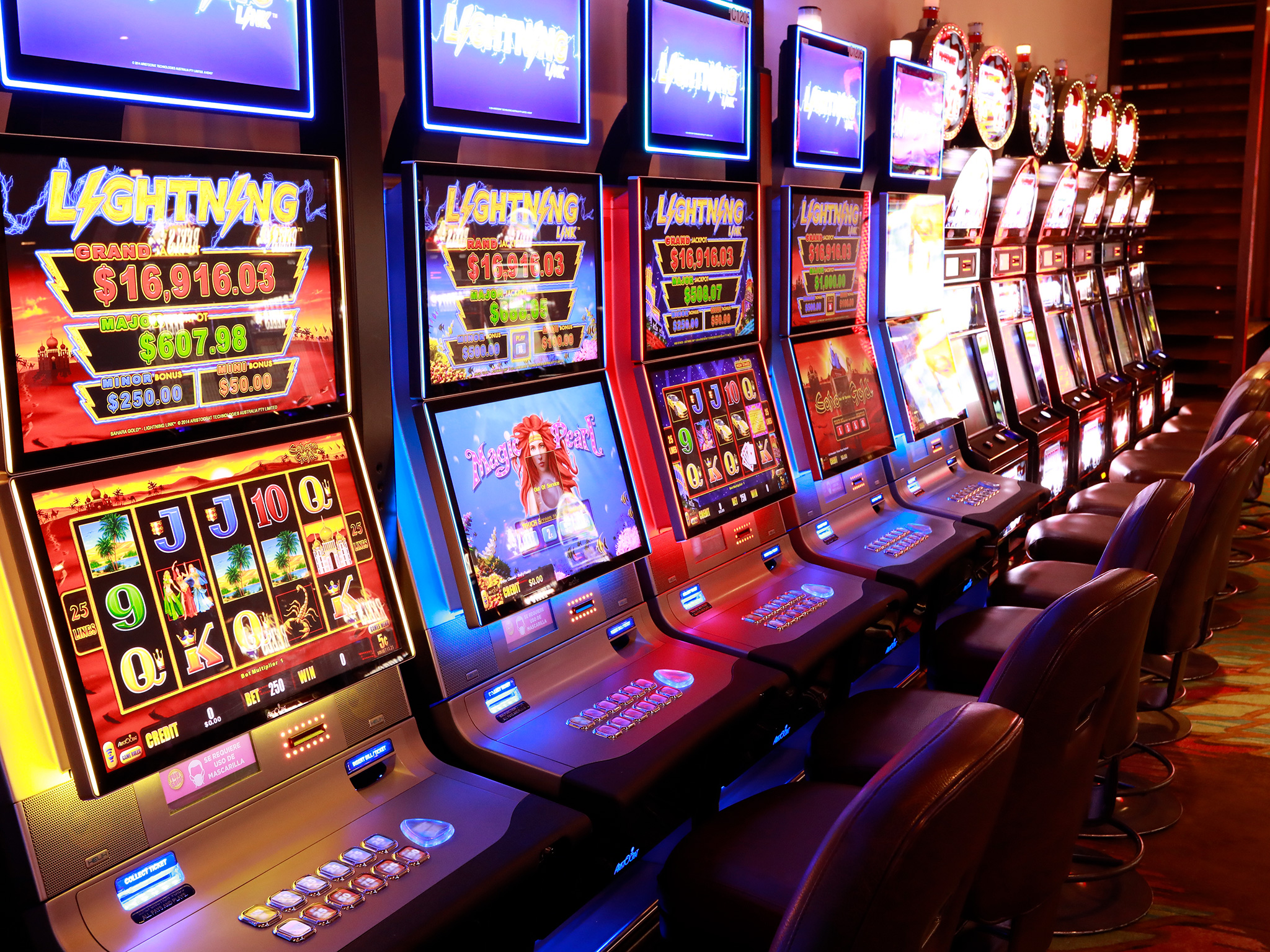Introduction
Are Casino Games Online Rigged: The fairness and integrity of online casino games are important considerations for players. Many people wonder whether online casino games are rigged to give the house an unfair advantage. It’s natural to have concerns about the randomness of the outcomes and the trustworthiness of online casinos.
In this digital era, where online gambling is increasingly popular, it’s crucial to understand the mechanisms behind online casino games and the measures in place to ensure fairness. This introduction aims to shed light on the topic and address the common question: Are casino games online rigged?
While it’s essential to approach online gambling with caution and choose reputable casinos, it is important to note that legitimate and licensed online casinos operate under strict regulations and compliance requirements. These requirements are in place to ensure fairness and prevent fraudulent practices. By understanding the safeguards and industry standards implemented by reputable online casinos, players can make informed decisions and enjoy a secure and fair gaming experience.

Are gambling casinos rigged?
Most casino games aren’t rigged in the sense that they’re not designed to cheat you. However, they’re “rigged” in another way, and casinos admit it openly. Every single game gives the house a mathematical advantage known as the house edge. This ensures that come what may, the house always wins.
It’s important to note that while casinos have systems in place to ensure their profitability, reputable and licensed casinos operate within legal frameworks and regulations.
Casinos use a mathematical advantage, known as the “house edge,” to ensure long-term profitability. This edge varies depending on the specific game being played, but it’s designed to give the casino a statistical advantage over the players. This advantage is how casinos make money in the long run.
However, it’s crucial to understand that licensed and regulated casinos are subject to strict oversight and auditing by gaming authorities. These authorities ensure that the games are fair and the outcomes are random. Rigging or manipulating games is illegal and can result in severe consequences for the casino.
Reputable casinos use random number generators (RNGs) to determine the outcome of games like slots, roulette, or blackjack. These RNGs are tested and certified by independent third-party agencies to ensure their fairness and randomness. This helps maintain the integrity of the games and provides a level playing field for the players.
While casinos have a built-in advantage, it doesn’t mean that every individual will lose or that the games are rigged against specific players. Gambling is based on chance, and some individuals may experience luckier outcomes than others. It’s important to approach gambling with the understanding that the odds are generally in favor of the casino and to gamble responsibly.
If you suspect any illegal or unethical practices at a casino, it’s recommended to report your concerns to the appropriate gambling regulatory authority in your jurisdiction.
Do online casino games really pay out?
There are lots of high-quality casino apps that pay real money. However, it is vital that you sign up with a licensed, legal, legitimate casino app. Check out our guide to the best casino apps on the market right now to find one that suits you.
Yes, online casino games can and do pay out real money winnings. Reputable online casinos employ random number generators (RNGs) to ensure fair and unbiased outcomes for their games. These RNGs generate random results, making each game outcome independent and unpredictable. When you win a bet or game at an online casino, you are eligible to receive real money payouts.
It’s important to choose licensed and regulated online casinos that have a solid reputation and a track record of fair play and timely payouts. These casinos undergo regular audits to ensure their games are fair and that players’ funds are secure. Additionally, reputable online casinos use secure payment methods to process withdrawals and provide customer support to assist with any payout-related queries.
However, it’s worth noting that like any form of gambling, online casino games have an element of luck, and not every player will win. The outcome of each game is based on chance, and while some players may experience significant wins, others may not be as fortunate. It’s essential to gamble responsibly and set realistic expectations when playing online casino games.
Can online casinos rig slot machines?
‘With official regulation, authorities can monitor websites, provide legal backing for the players, and enforce judgments on gambling companies. It’s safe to say that yes, online slots and casino games can be rigged. However, all serious websites take the appropriate steps to ensure fair play for their customers.
Reputable and licensed online casinos typically do not rig their slot machines. Similar to physical casinos, online casinos use random number generators (RNGs) to determine the outcome of their slot games. RNGs are designed to produce random and unbiased results, ensuring fair gameplay.
Licensed online casinos are subject to regulations and oversight by gaming authorities, just like their brick-and-mortar counterparts. These authorities ensure that the online casino games, including slot machines, meet specific standards of fairness and randomness. The RNGs used by online casinos are typically tested and certified by independent third-party agencies to ensure their integrity.
It’s important to note that while online casinos strive to provide a fair gaming experience, the house always has an inherent mathematical advantage. This advantage is typically represented by the return-to-player (RTP) percentage, which indicates the average amount of money returned to players over the long term.
However, it’s worth mentioning that not all online casinos operate legitimately. There are some rogue or unregulated online casinos that may engage in unethical practices, including rigging games to their advantage. That’s why it’s essential to choose reputable and licensed online casinos that are regulated by recognized gaming authorities. Reading reviews, checking for licenses, and researching the reputation of an online casino can help you make an informed decision.
If you have concerns about the fairness of a specific online casino, it’s advisable to report your suspicions to the relevant regulatory authority in your jurisdiction.

How secure are online casino games?
All deposits and withdrawals should be completely secure, using the highest levels of SSL encryption technology. What’s more, no trusted online casino will share your data with third parties.
Reputable online casinos prioritize the security and integrity of their games to ensure a safe and fair gambling experience for their players. Here are some key security measures that online casinos employ:
1. Licensing and Regulation: Trusted online casinos operate under valid licenses issued by recognized regulatory authorities. These licenses ensure that the casino adheres to strict standards of player protection, fair play, and security.
2. Random Number Generators (RNGs): Online casino games utilize random number generators to ensure the fairness and randomness of game outcomes. These RNGs generate unpredictable results, making it virtually impossible for anyone to manipulate or predict the outcome of a game.
3. Encryption and Secure Transactions: Reputable online casinos employ advanced encryption technology to protect players’ personal and financial information. They use Secure Sockets Layer (SSL) encryption to safeguard data transmission, ensuring that sensitive details are encrypted and cannot be accessed by unauthorized parties.
4. Audits and Testing: Trusted online casinos undergo regular audits and testing by independent third-party organizations. These audits verify the fairness and integrity of the games and ensure that they comply with industry standards and regulations.
5. Responsible Gambling Measures: Secure online casinos promote responsible gambling and provide resources and tools to help players manage their gambling activity. This includes setting deposit limits, self-exclusion options, and providing access to support organizations for players who may need assistance.
While online casino games are generally secure, it’s important for players to choose reputable and licensed casinos to ensure a safe and protected gaming experience. It’s recommended to research and select online casinos with a proven track record of security, fairness, and customer satisfaction.
What are the odds of winning casino games?
Best Games to Play at a Casino
- Video Poker: -0.05% – 2%
- Blackjack: 0.43% – 2%
- Baccarat: 1.06% – 1.24%
- Craps: 1.36% – 1.41%
- Ultimate Texas Hold’em: 2.20%
- European Roulette: 2.70%
- Pai Gow Poker: 2.84%
The odds of winning casino games can vary significantly depending on the specific game you’re playing. Each game has its own set of rules and probabilities, which determine the likelihood of winning. Here’s a brief overview of the odds for some popular casino games:
1. Slot Machines: Slot machine odds are typically expressed as a return-to-player (RTP) percentage. RTP represents the average amount of money returned to players over time. It’s important to note that the specific odds can vary widely, but RTP percentages for slot machines typically range from 90% to 98%. Keep in mind that this percentage is calculated over the long term and individual sessions can deviate significantly.
2. Blackjack: Blackjack is a card game where the player competes against the dealer. The odds of winning in blackjack depend on the player’s strategy and the specific rules of the game. With basic strategy, which involves making optimal decisions based on the player’s hand and the dealer’s upcard, the house edge can be as low as 0.5% or even lower. However, the house edge can increase if the player deviates from basic strategy or if specific rules favor the casino.
3. Roulette: In roulette, the odds depend on the type of bet you place. The game has various betting options, such as betting on a specific number, color (red or black), odd or even numbers, or groups of numbers. The odds vary depending on the type of bet, but the house edge is generally around 2.7% for European roulette (single zero) and 5.26% for American roulette (double zero).
4. Craps: Craps is a dice game where players make various bets on the outcome of the roll. The odds in craps can vary significantly depending on the specific bet. For example, the Pass Line and Don’t Pass Line bets have a house edge of around 1.4%, while other bets, such as Any Seven or Hardways bets, have higher house edges.
5. Baccarat: Baccarat is a card game where players have three possible bets: Player, Banker, or Tie. The odds in baccarat favor the Banker bet slightly, with a lower house edge. The Banker bet has an approximate house edge of 1.06%, while the Player bet has a house edge of around 1.24%. The Tie bet has a much higher house edge, typically around 14%.
It’s important to remember that these odds are based on long-term averages and probabilities, and individual results can vary greatly. Additionally, the specific rules, variations, and strategies employed can influence the odds in each game.
Are online casino games rigged to give the house an unfair advantage?
No, reputable online casinos do not rig their games to give the house an unfair advantage. Legitimate online casinos operate under strict regulations and are subject to independent testing and auditing to ensure fairness. They use Random Number Generators (RNGs) to determine the outcomes of games, which ensures that each result is random and unbiased.
Additionally, reputable online casinos are licensed and regulated by recognized authorities, such as the United Kingdom Gambling Commission or the Malta Gaming Authority, which enforce strict standards for fair play and player protection. It is important for players to choose licensed and reputable online casinos to ensure a fair and secure gaming experience.
How can players ensure the fairness of online casino games?
Players can ensure the fairness of online casino games by following these steps:
1. Choose reputable casinos: Play at online casinos that are licensed and regulated by recognized authorities. These casinos are subject to strict regulations and independent audits to ensure fairness.
2. Check for RNG certification: Look for casinos that have their Random Number Generators (RNGs) tested and certified by independent third-party organizations. These certifications verify that the games’ outcomes are random and unbiased.
3. Read reviews and ratings: Before playing at an online casino, research and read reviews from trusted sources. Look for feedback on the casino’s reputation, fairness, and reliability.
4. Look for encryption and security measures: Ensure that the online casino uses advanced encryption technology to protect your personal and financial information. Look for SSL (Secure Socket Layer) encryption and other security measures.
5. Responsible gaming policies: Choose casinos that promote responsible gambling and have measures in place to prevent problem gambling. This shows their commitment to player safety and fair play.
6. Contact customer support: If you have any concerns about the fairness of games, reach out to the casino’s customer support. A reliable and reputable casino will address your queries and provide transparent information about their gaming practices.
By following these steps, players can have confidence in the fairness and security of online casino games.
What regulatory measures are in place to prevent online casinos from rigging their games?
Online casinos that operate legitimately and hold licenses from reputable regulatory bodies are subject to various regulatory measures to ensure fair and secure gameplay. While specific regulations may vary depending on the jurisdiction, here are some common regulatory measures in place:
1. Licensing and Regulation: Online casinos must obtain licenses from recognized regulatory authorities to operate legally. These licensing bodies, such as the Malta Gaming Authority (MGA), the UK Gambling Commission (UKGC), or the Isle of Man Gambling Supervision Commission, impose strict requirements on the casino operators. They ensure that the casinos meet certain standards of fairness, security, player protection, and responsible gambling.
2. Random Number Generators (RNGs): Online casinos use random number generators to determine the outcomes of their games. RNGs are tested and certified by independent third-party testing agencies, such as eCOGRA or iTech Labs. These agencies verify that the RNGs produce truly random and unbiased results, ensuring fair gameplay for players.
3. Auditing and Testing: Licensed online casinos undergo regular auditing and testing to verify their compliance with regulations. Independent auditing firms review the casino’s operations, including the games, payout percentages, and security measures. This helps ensure that the casino is operating fairly and transparently.
4. Player Protection Measures: Regulatory bodies require online casinos to implement measures to protect players. These measures may include age verification processes to prevent underage gambling, responsible gambling tools like deposit limits and self-exclusion options, and safeguards against money laundering and fraudulent activities.
5. Complaint Resolution: Regulatory authorities often have procedures in place to handle player complaints and disputes with online casinos. Players can submit complaints if they believe they have been treated unfairly or if they suspect any unethical practices. The regulatory bodies investigate these complaints and take appropriate actions, including sanctions or license revocation if necessary.
6. Financial Security: Licensed online casinos are typically required to demonstrate financial stability and security. They must segregate player funds from operational funds to ensure that player deposits are protected even in the event of the casino’s financial difficulties.
It’s important for players to choose online casinos that are licensed and regulated by reputable authorities. This provides a level of assurance that the casino operates within a regulated framework and is subject to oversight to prevent rigging or unfair practices. Players can usually find information about a casino’s licensing and regulatory status on its website.

Conclusion
The question of whether online casino games are rigged is a common concern among players. However, it is important to understand that reputable online casinos operate under strict regulations and compliance standards to ensure fairness and transparency. These casinos utilize advanced technology and algorithms to generate random outcomes, simulating the same level of unpredictability as in land-based casinos.
While there have been cases of rogue operators or unregulated platforms engaging in unfair practices, players can protect themselves by choosing licensed and reputable online casinos. These casinos undergo regular audits and testing by independent third-party organizations to verify the integrity of their games and ensure compliance with industry standards.
Additionally, players can look for casinos that have a solid reputation, positive player reviews, and transparent terms and conditions. It’s also advisable to review the licensing and regulatory information of the casino before engaging in real-money play.
By practicing due diligence and making informed choices, players can enjoy online casino games with confidence, knowing that they have a fair chance of winning and that their personal and financial information is secure.










